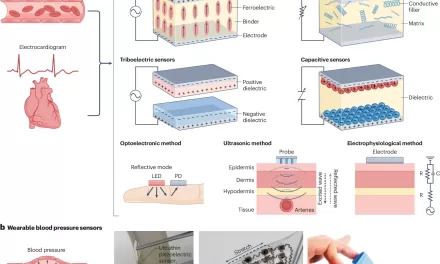Chronic liver conditions, particularly non-alcoholic fatty liver disease (NAFLD), pose significant health risks globally, often culminating in liver inflammation and potentially liver cancer. In a groundbreaking study, researchers from the German Cancer Research Center (DKFZ) and the University of Tübingen have unveiled a potential game-changer in combating this escalating health concern: intermittent fasting.
Published in a recent edition of [Journal Name], the study conducted on mice* reveals that intermittent fasting on a 5:2 schedule could effectively arrest the development of liver cancer, particularly in cases where pre-existing liver inflammation is present. This fasting regimen demonstrates a remarkable reduction in liver cancer progression among mice with underlying liver inflammation. The researchers identified two pivotal proteins within liver cells responsible for this protective effect, with implications extending to the realm of drug development.
Non-alcoholic fatty liver disease stands as the most prevalent chronic liver ailment, with dire consequences if untreated, progressing from metabolic dysfunction-associated steatohepatitis (MASH) to liver cirrhosis and, ultimately, liver cancer. The rise in obesity rates globally has exacerbated the prevalence of fatty liver disease, underscoring the urgency for effective interventions.
Lead researcher Mathias Heikenwälder of DKFZ and the University of Tübingen emphasizes the imperative of exploring simple dietary modifications to interrupt this hazardous cascade of events. Intermittent fasting, already lauded for its efficacy in weight reduction and mitigating metabolic disorders, emerged as a potential solution in this study.
In the experiment, mice were subjected to a high-sugar, high-fat diet mirroring the typical Western dietary pattern. One group had unrestricted access to food, leading to weight gain and chronic liver inflammation. In contrast, the other group followed a 5:2 intermittent fasting regimen, where they abstained from food for two days per week but could eat ad libitum on the remaining days. Remarkably, despite the calorie-rich diet, fasting mice exhibited resistance to weight gain, showcased fewer liver disease markers, and displayed diminished signs of liver damage.
The research also shed light on the optimal parameters for intermittent fasting’s protective effects. Factors such as fasting frequency, duration, and timing were identified as critical determinants in mitigating liver inflammation. Notably, a 5:2 fasting pattern outperformed other variants, indicating its potential efficacy in diverse dietary contexts.
Delving into the molecular mechanisms underlying fasting’s benefits, the researchers pinpointed two key players: the transcription factor PPARα and the enzyme PCK1. These proteins collaborate to enhance fatty acid breakdown and gluconeogenesis while inhibiting fat accumulation, orchestrating a favorable metabolic milieu conducive to liver health.
The study’s translational implications are significant, with the drug pemafibrate demonstrating partial mimicry of fasting’s effects by targeting PPARα. However, the researchers acknowledge the need for comprehensive interventions targeting both identified proteins for maximal therapeutic impact.
Beyond prevention, intermittent fasting showcased promise in ameliorating existing chronic liver inflammation, offering hope for patients grappling with advanced liver disease. Mice subjected to prolonged intermittent fasting exhibited improved blood parameters, reduced liver fat accumulation, and notably, decreased incidence of liver cancer.
Principal investigator Heikenwälder underscores the pivotal role of intermittent fasting as both a preventive measure and a therapeutic intervention against liver disease. The study’s encouraging outcomes warrant further exploration in clinical settings to validate its efficacy in human populations.
Despite the growing popularity of the 5:2 fasting regimen for its flexibility and ease of integration into daily life, the researchers advocate for continued investigations into complementary pharmacological approaches. By elucidating the molecular underpinnings of fasting’s benefits, the study paves the way for targeted drug development to complement dietary interventions in combating liver disease.
In conclusion, the study underscores the transformative potential of intermittent fasting in combating the burgeoning epidemic of liver disease, offering a beacon of hope for millions worldwide grappling with this silent health crisis.












